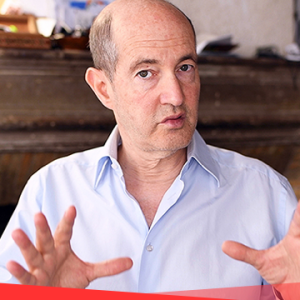
7 days ago
Patrick Weil - The status of citizens and the right to nationality
Patrick Weil, Professor at Yale Law School and Senior Research Fellow at the French National Centre for Scientific Research, explores citizenship.
About Patrick Weil
"I’m a Research Professor at the University of Paris 1 Panthéon Sorbonne and a visiting scholar in law at Yale Law School.
In my work I have often explored the issues of citizenship and immigration laws and policies."
Citizenship and the World Wars
The new citizen of today was created in reaction to the two World Wars of the 20th century and their context. In the First World War, the French and the British Empires, which had tolerated dual nationality, had to face the fact that some of their citizens were German and British or German and French, and would fight for the enemy. So they created a provision in their law for the denaturalisation, or the deprivation of citizenship, of these dual citizens who had broken their allegiance to the French or the British Empire. In 1906, the United States had already created a provision for denaturalisation, not for the same reason but to face the corruption that existed in the federal system of British citizenship in the United States. The three main democracies had thus instituted in their law the mechanism of denaturalisation.
Very soon, dictatorships created a massification of the same provision. In a democratic system, you could be denaturalised but only through an individual process and only a court could decide. With the emergence of the Soviet Union and then the Nazi regime, massive denationalisation of what the regime considered enemy citizens or racial enemy citizens was carried out. The same thing occurred in Turkey. Suddenly, the world was faced with hundreds of thousands, or millions, of people who had become stateless.
Key Points
• Denaturalisation laws emerged in democracies and dictatorships in the context of the World Wars.
• Having a nationality has become the basis for all other human rights.
• The UNHCR offers protected status to refugees and stateless people.
• Identification documents offer evidence of our legal identity and rights.
No comments yet. Be the first to say something!